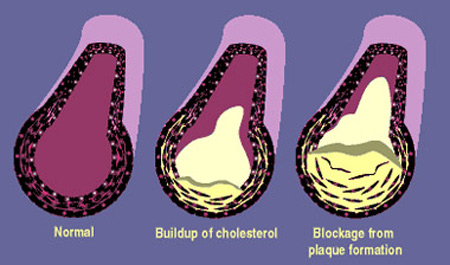According to a new study, good cholesterol which helps to battle heart diseases, may sometimes raise the risk of heart attacks.
There are two types of cholesterols- high-density lipoprotein (HDL) and low-density lipoprotein (LDL). Out of these two, HDL is also known as good cholesterol as high levels of HDL seem to protect against heart attacks.
High levels of LDL (Bad cholesterol) in the blood can increase the risk of heart diseases, and if it increases in the blood, it can stick to the walls of arteries.
However, the new study has shown HDL is not always good for the heart. If it exists in defective forms, it can increase the risk of a heart attack.
The research found that some of the proteins within HDL are potentially destructive, promoting the accumulation of cholesterol in the arteries. If too many of these proteins are present in the molecule, they could outweigh the beneficial effects of other proteins, reported the online edition of Daily Mail.
Overall, HDL is beneficial and the results do not challenge evidence that supplements of omega-3 (a fatty acid present in fish like salmon), which boost HDL levels, protect against heart problems.
But researchers say the new finding could lead to better-targeted drugs to protect against heart attacks.
“Simply boosting HDL levels may not be enough to prevent heart diseases.You might have to target the right proteins in HDL,” said study leader Jay Heinecke from the University of Washington in Seattle.

